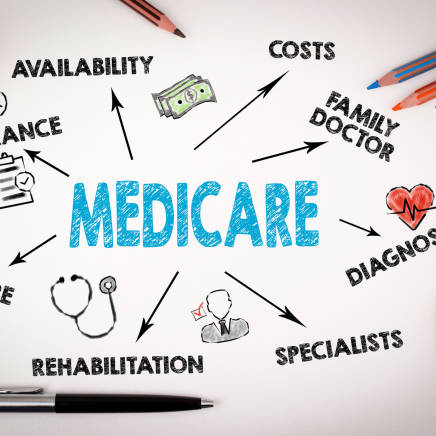Key Takeaways:
- Early retirement offers enticing freedom but comes with financial risks that demand thorough planning, especially for federal employees.
- Understanding the rules of your retirement system, benefits, and health coverage is crucial to safeguarding your federal pension plans.
Is Early Retirement Right for You?
Deciding to retire early is a significant life choice that can impact your long-term financial security. While the idea of more free time and fewer work commitments is tempting, it’s essential to consider whether early retirement aligns with your financial goals and lifestyle needs.
For federal employees, early retirement involves weighing your pension benefits, health insurance options, and the timing of Social Security. Leaving the workforce before your minimum retirement age
- Also Read: Divorce and Your Federal Pension—What Happens When You Split Assets and How It Could Affect Your TSP
- Also Read: What Happens to Your Federal Benefits After Divorce? Here’s the Lowdown
- Also Read: The Best FEHB Plans for 2025: Which One Fits Your Lifestyle and Budget the Best?
Understanding Federal Retirement Systems
The Two Main Systems: FERS and CSRS
Federal employees fall under either the Federal Employees Retirement System (FERS) or the Civil Service Retirement System (CSRS). These systems have distinct rules for retirement eligibility and pension calculations.
- FERS: Covers most federal employees and integrates Social Security, a basic pension, and the Thrift Savings Plan (TSP). Early retirement penalties can significantly reduce your pension under FERS.
- CSRS: Applies to employees hired before 1984 and offers more generous pension benefits but does not include Social Security.
Knowing which system applies to you is the first step in assessing your early retirement options.
Meeting Eligibility Requirements
Early Retirement Options for FERS Employees
Under FERS, you may qualify for early retirement through:
- MRA +10: Retire at your minimum retirement age with at least 10 years of service, though your pension is reduced by 5% for each year you are under age 62.
- Voluntary Early Retirement Authority (VERA): Offered during workforce reductions, allowing employees to retire early with immediate benefits if they have at least 20 years of service at age 50 or 25 years at any age.
CSRS Employees and Early Retirement
CSRS employees can also use the VERA option, but early retirement is rare unless authorized by your agency. The steep pension reduction for leaving before age 55 can be a significant deterrent.
The Financial Impact of Retiring Early
Your Pension Will Be Smaller
Early retirement often leads to a reduced pension due to fewer service years and penalties for not meeting age thresholds. Under FERS, the 5% annual reduction for MRA+10 can substantially diminish your monthly annuity.
For example, if your MRA is 57 and you retire at 55, your pension may be reduced by 10%. This reduction is permanent and can dramatically affect your long-term income.
Social Security Timing Matters
FERS employees rely on Social Security for a portion of their retirement income. However, claiming benefits early (as young as age 62) reduces your monthly payments. Waiting until your full retirement age (FRA), or even delaying until age 70, maximizes your benefits.
Health Insurance Costs May Skyrocket
Federal employees enjoy excellent health insurance through the Federal Employees Health Benefits (FEHB) program. Retirees can keep FEHB coverage, but if you retire before age 65, you’ll have to cover your premiums without Medicare as a secondary payer. This can result in higher out-of-pocket costs.
The Role of the Thrift Savings Plan (TSP)
The TSP serves as a critical piece of your retirement income puzzle. As a FERS employee, your TSP savings and agency contributions supplement your pension and Social Security. For CSRS employees, it’s an essential way to build additional retirement income.
TSP Withdrawal Options for Early Retirees
If you retire before age 59½, accessing your TSP funds without penalties can be challenging. However, options like substantially equal periodic payments (SEPP) under IRS Rule 72(t) can allow penalty-free withdrawals.
It’s important to create a withdrawal strategy that balances your income needs with preserving your savings for the future.
Hidden Costs and Risks of Early Retirement
Inflation Can Erode Your Buying Power
Even a modest annual inflation rate of 3% can significantly reduce the value of your pension over time. If you retire at 55 and live to 85, your purchasing power could decline by nearly 60%.
Healthcare Costs Before Medicare
Without Medicare (available at age 65), you’ll rely solely on FEHB for health coverage. Plan premiums, deductibles, and co-pays can strain your budget, especially if you need regular medical care.
Loss of COLA Adjustments
FERS retirees under age 62 typically do not receive cost-of-living adjustments (COLAs). Without these adjustments, your pension may not keep up with rising expenses.
Strategies to Prepare for Early Retirement
Boost Your Savings
Consider increasing your TSP contributions or building a separate emergency fund to cover unexpected expenses. The 2024 TSP contribution limit is $23,000, with an additional $7,500 catch-up contribution for those aged 50 and older.
Delay Social Security
If possible, plan to claim Social Security benefits closer to your FRA or later to maximize monthly payments.
Maintain FEHB Coverage
Ensure you meet the requirement of being enrolled in FEHB for at least five years before retiring. This eligibility is crucial for keeping your health insurance in retirement.
Alternatives to Early Retirement
If early retirement feels financially risky, consider other options:
- Part-Time Work: Transition to a reduced schedule within your agency or find a flexible job post-retirement.
- Phased Retirement: Some agencies allow employees to work part-time while collecting a partial pension.
- Postponing Retirement: Waiting even a few years can increase your pension and savings significantly.
How to Make Your Decision
Assess Your Financial Readiness
Evaluate whether your savings, pension, and Social Security benefits will cover your anticipated expenses. Use retirement calculators or seek professional advice to create a realistic budget.
Think Long-Term
Your retirement could last 30 years or more. Plan for the unexpected, such as medical emergencies or economic downturns. Diversify your investments and avoid withdrawing too much too soon.
Set Clear Goals
What does early retirement mean to you? Whether it’s traveling, spending time with family, or pursuing a hobby, ensure your financial plan supports your vision.
When Early Retirement Could Work
Early retirement can be feasible if you:
- Have significant savings to supplement your reduced pension.
- Plan to minimize expenses during the gap years before Medicare.
- Are in good health and anticipate lower medical costs.
- Are prepared for potential inflation and COLA limitations.
What’s Next for Your Retirement Planning?
Early retirement is more than just leaving your job—it’s a strategic decision that requires careful consideration of your benefits, savings, and future needs. As a federal employee, you have valuable resources at your disposal, but early retirement is not without challenges.
With thoughtful planning and a focus on long-term financial security, you can make the dream of early retirement a reality while protecting your pension and overall financial health.












